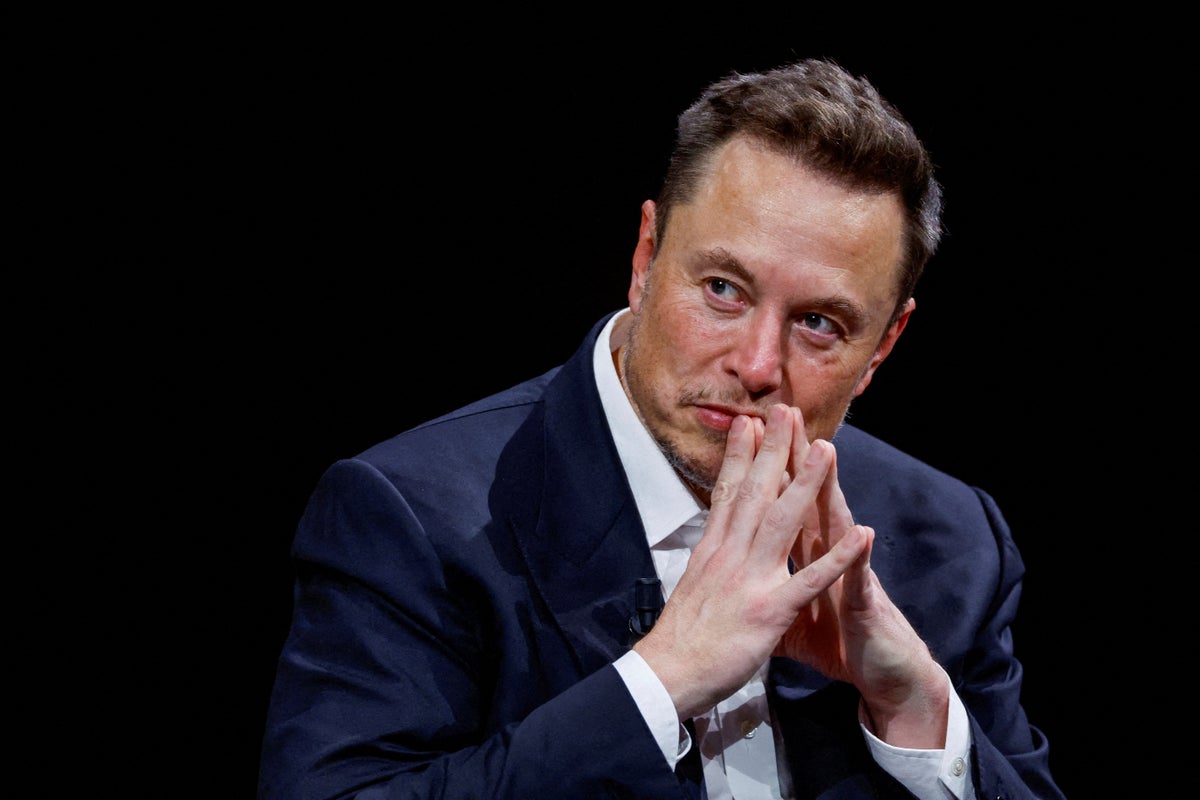Why is Elon Musk obsessed with the letter X?


Elon Musk formally renamed Twitter “X” in July, cementing the rebrand by bolting the symbol to the top of the social network’s San Francisco headquarters and replacing Larry the Bird, its mascot since 2012, with a grungy black logo soon afterwards.
Linda Yaccarino, X’s new CEO, declared at the time of the rebrand: “X is the future state of unlimited interactivity – centered in audio, video, messaging, payments/banking – creating a global marketplace for ideas, goods, services, and opportunities. Powered by AI, X will connect us all in ways we’re just beginning to imagine.”
Mr Musk had already renamed the company itself X Corp in March, six months after acquiring it for $44m, a purchase he described at the time as “an accelerant to creating X, the everything app”, his vision for a multipurpose competitor to China’s WeChat.
The decision was just the latest example of the entrepreneur’s preoccupation with the 24th letter of the alphabet: his first business venture was X.com, he shortened the name of Space Exploration Technologies Corp to SpaceX, he launched the Tesla Model X and has a new artificial intelligence startup named xAI.
He even calls his son X Æ A-12 just X for short.
So what is the obsession about and where did it begin?
His first venture, X.com, was an online banking and financial services platform launched in Palo Alto, California, in 1999 that would ultimately be merged with Confinity to become PayPal, which was in turn then sold to eBay for $1.5bn in 2002, Mr Musk using some of the capital he earned as its largest shareholder to found SpaceX.
Julie Anderson Ankenbrandt, a former PayPal executive, explained how Mr Musk’s platform got its name in a Quora post in 2016.
“Elon, the other founders of the company that was X.com… and I sat around a backroom table at a long-defunct bar called the Blue Chalk in Palo Alto, trying decide what the name of the company should be… and the question at hand was whether to be Q, X or Z dot com,” she wrote.
“Finally, when the waitress/female server brought the next round of drinks Elon asked her what she thought, and she said she like[d] X.com. Elon pounded the table and said ‘That’s it then!’ and everyone laughed, but in the end that was pretty much how it was decided.”
Not everyone was happy with the decision, according to Mr Musk’s biographer Ashlee Vance, who told NPR: “Everyone tried to talk him out of naming the company that back then because of the sexual innuendos, but he really liked it and stuck with it.”
He liked the name so much he bought the X.com domain back from PayPal in 2017 and thanked the company in a tweet, explaining that it had “great sentimental value” to him. The domain now redirects to the social network that has since taken on its old moniker.
Elsewhere, the Tesla Model X – a midsize luxury crossover SUV with falcon wing doors – was named so that, with three other models, the range would spell out “S3XY”, giving you an insight into Mr Musk’s gawky sense of humour.
As for his son, the boy’s mother Grimes explained in a tweet of her own that the symbol is used in algebra to denote any unknown variable, perhaps suggesting the child is free to grow up to be whatever they choose to be.
Their infant daughter, incidentally, was originally christened “Exa Dark Sideræl” but that has since been altered, according to the pop star: “She’s Y now, or ’Why?’ or just ‘?’ (But the government won’t recognize that). curiosity, the eternal question, .. and such.”
The rebranding of Twitter to X sparked a great deal of musing about the letter’s possible significance (or lack thereof), with Lora Kelly of The Atlantic writing: “The letter is associated with such varied contexts as Christian symbolism, middle-school-math equations, gender neutrality, pornography, a kiss.”
In Psychology Today, Leon F Selzer discussed its “nihilistic” values, noting that it has associations with everything from the Nazi swastika to a skull-and-crossbones danger warning on a bottle of poison to Roman numerals, voting and Christmas (at least when abbreviated to “Xmas”) and therefore can mean everything and nothing.
Meanwhile, in The New York Times, Stella Bugbee suggested the choice was arguably a bit dated and perhaps represented a case of Mr Musk showing his age as a member of, appropriately enough, Generation X.
“For marketing purposes in the 1990s, X had a certain cool,” she explained. “It conferred a rejection of authority.”
While that observations rings true of such turn-of-the-millennium cultural detritus as, say, the arrival of Microsoft’s XBox in 2001 or Vin Diesel’s action film XXX (2002), it has also been used in the same way before and since: think of country star Loretta Lynn’s notoriety-courting 1972 single “Rated X” or the cult 1980s Los Angeles punk band X, for instance, or the more recent Ti West horror film X (2022).
As Lora Kelly observed: “X both reinforces absence and electrifies objects with meaning. It is sacred and profane.”




